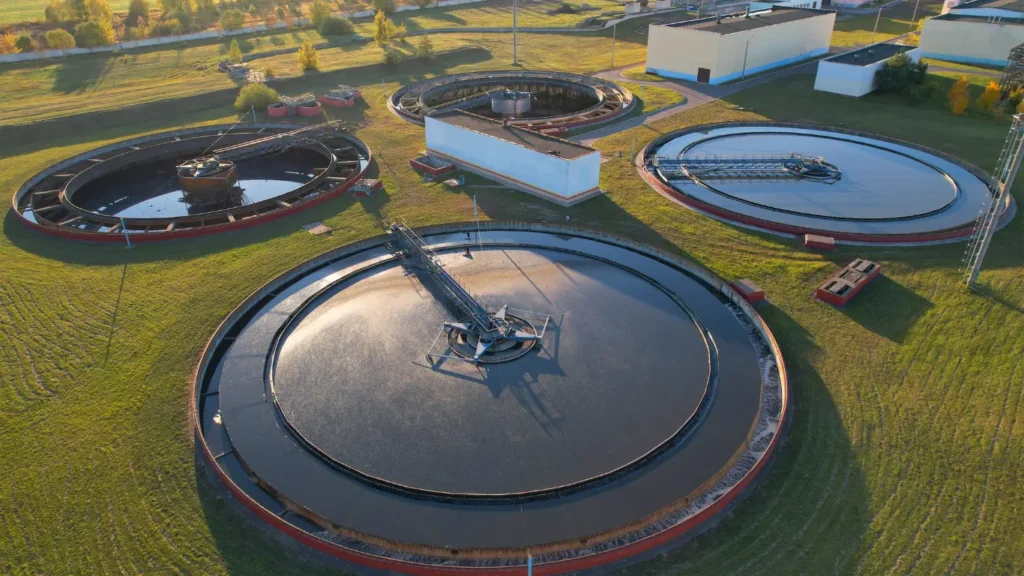Water scarcity is an increasingly pressing global issue, with industries playing a pivotal role in either making it worse or alleviating the problem. As concerns about water resources grow, some forward-thinking industries are stepping up as water conservation champions by adopting Zero Liquid Discharge (ZLD) technology. ZLD represents a groundbreaking approach to wastewater management, ensuring minimal water wastage and environmental impact. In this blog post, we’ll explore how Scaleban is helping industries in embracing ZLD technology to become leaders in water conservation.
Concept of Zero Liquid Discharge (ZLD) Technology for Industries
Zero Liquid Discharge is a water treatment process that aims to eliminate liquid waste discharge entirely. Unlike traditional wastewater treatment methods, where a certain amount of effluent is released into the environment, ZLD technologies goes the extra mile to recover and reuse almost all wastewater generated by industrial processes. This innovative approach not only conserves water but also minimizes pollution by stopping effluent discharge into fresh water bodies thus preventing environmental harm and attains environmental sustainability.
Take the lead, make a difference. Start your ZLD journey with Scaleban today!
Textile Sector
The textile industry has long been criticized for its heavy water usage and pollution. However, progressive textile manufacturers are now adopting ZLD technology to revolutionize their water management practices. By treating and recycling wastewater on-site, these companies are drastically reducing their reliance on external water sources and mitigating the environmental impact associated with textile production.
One notable example is a leading textile mill in India that has implemented ZLD technology to treat and recover water from dyeing processes. By doing so, they have not only cut down on water consumption but have also significantly decreased the discharge of harmful pollutants into nearby water bodies.
Pharmaceutical Sector
The pharmaceutical industry, with its intricate manufacturing processes, has historically produced substantial amounts of wastewater containing various chemicals. However, some pharmaceutical companies are championing water conservation by embracing ZLD technology.
These industry leaders are investing in advanced water treatment facilities that allow them to recover and reuse water, minimizing their ecological footprint. By adopting ZLD, pharmaceutical companies are not only addressing their water consumption concerns but are also aligning their operations with global sustainability goals (SDG goals).
Take the lead, make a difference. Start your ZLD journey with Scaleban today!
Oil and Gas Industry
The oil and gas industry, notorious for its water-intensive operations, is making strides in water conservation through ZLD adoption. With processes like hydraulic fracturing requiring vast amounts of water, forward-thinking companies are recognizing the importance of responsible water management.
By implementing ZLD technology, these companies are not only reducing the environmental impact of their operations but are also ensuring the responsible use of water resources. This shift towards sustainable water practices is a positive sign that even traditionally resource-intensive industries can evolve to become water conservation champions.
Food and Beverage Sector
In the food and beverage sector, where water is a crucial ingredient in various production processes, ZLD technology is gaining traction. Food processing plants are increasingly turning to ZLD to treat and recover water from cleaning, rinsing, and other manufacturing processes.
By adopting ZLD, these companies are not only safeguarding water resources but are also enhancing their overall sustainability profiles. As consumers become more environmentally conscious, supporting brands that prioritize water conservation is becoming a significant factor in purchasing decisions.
The Road Ahead
While these examples showcase the positive impact of ZLD technology in different industries, achieving widespread water conservation requires a collective effort. Governments, businesses, and consumers must collaborate to promote and incentivize sustainable water management practices.
As industries continue to harness ZLD technology, they serve as inspiring examples for others to follow. By adopting innovative solutions and committing to water conservation, these industries are not only securing their own futures but are contributing to the well-being of the planet.
Water conservation champion industries also help in achieving Sustainable Development Goals (SDGs), particularly through Zero Liquid Discharge (ZLD) initiatives. Scaleban ensures ZLD technologies that minimize water waste and maximize resource efficiency, aligning with SDG 6 (Clean Water and Sanitation). By implementing ZLD, they ensure responsible water management, contributing to SDG 12 (Responsible Consumption and Production) and SDG 13 (Climate Action). These efforts not only mitigate water scarcity but also foster sustainable ecosystems. These champions exemplify the transformative impact individuals can have on global goals, emphasizing the interconnectedness of water conservation and broader sustainable development objectives.
In conclusion, water conservation champions are emerging across various industries, demonstrating that economic growth and environmental responsibility can go hand in hand. The adoption of Zero Liquid Discharge technology is a critical step forward, showing that industries can be at the forefront of positive change in the fight against water scarcity. As we celebrate this, let’s also encourage and support more businesses to join the ranks of water conservation champions with Scaleban, creating a sustainable and water-secure future for generations to come.
